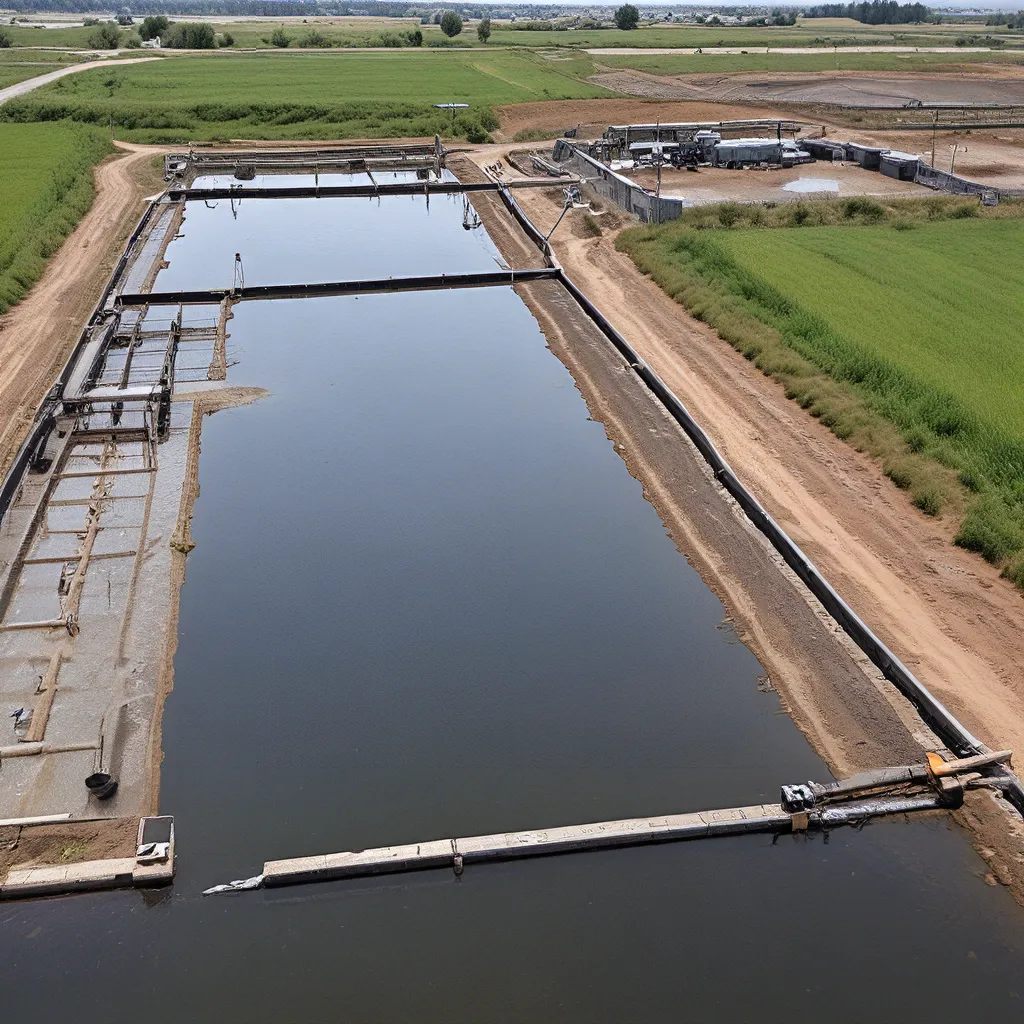
As an avid environmentalist and someone who’s always been fascinated by the hidden complexities of our world, I’ve long been intrigued by the topic of wastewater treatment. It’s one of those unsung heroes of modern infrastructure – something we often take for granted, yet it plays a vital role in safeguarding our health, our communities, and the delicate balance of our ecosystems.
Understanding the Wastewater Challenge
Wastewater, at its core, is a byproduct of our daily lives – the used water that flows down our drains, carries away our waste, and holds the potential to either enrich or endanger our natural resources. The sheer volume of wastewater we generate globally is staggering, with estimates suggesting that around 380 billion cubic meters of municipal wastewater is produced each year. That’s a mind-boggling amount of water that needs to be properly treated and managed.
But the challenge goes beyond just the scale of the problem. Wastewater can contain a complex cocktail of pollutants, ranging from organic matter and nutrients to heavy metals and persistent chemicals. If left untreated, this contaminated water can wreak havoc on aquatic life, pollute our drinking water sources, and even pose serious risks to human health.
The Paradigm Shift: Wastewater as a Resource
Historically, the approach to wastewater management has been largely focused on treatment – removing the pollutants and making the water safe for discharge. But in recent years, there’s been a profound shift in how we view wastewater. Rather than seeing it as a waste product to be disposed of, we’re beginning to recognize its potential as a valuable resource.
This new paradigm is being driven by the urgent need for sustainable, circular approaches to resource management. As the world grapples with issues like water scarcity, energy demands, and resource depletion, the idea of extracting and repurposing the valuable components within wastewater has become increasingly compelling.
Harnessing the Power of Wastewater
So, what exactly can we harvest from wastewater? It turns out, a lot. Let’s dive into some of the key resources that can be recovered and reused:
Water Reclamation
One of the most obvious and impactful applications is water reclamation. By treating wastewater to a high standard, we can recover clean, reusable water that can be used for a variety of purposes, such as irrigation, industrial processes, and even potable (drinking) water. This not only reduces the demand on freshwater sources but also helps to alleviate the growing water scarcity crisis that many regions are facing.
Nutrient Recovery
Wastewater also contains a wealth of nutrients, such as nitrogen and phosphorus, which are essential for plant growth. By extracting and refining these nutrients, we can produce valuable fertilizers that can be used to enhance agricultural productivity and reduce the reliance on synthetic, energy-intensive fertilizers.
Energy Production
But it doesn’t stop there. Wastewater can also be a source of renewable energy. As wastewater undergoes the treatment process, the organic matter it contains can be converted into biogas, a methane-rich fuel that can be used to generate heat and electricity. This circular approach not only helps to reduce our carbon footprint but also offsets the energy demands** of the wastewater treatment process itself.
Valuable Compounds
Beyond these primary resources, wastewater can also contain a diverse array of valuable compounds, such as heavy metals, bioplastics, and even rare earth elements. By recovering and refining these substances, we can create new revenue streams and reduce our reliance on virgin materials.
Innovations in Wastewater Treatment
To unlock the full potential of wastewater as a resource, the wastewater treatment industry has been spearheading a wave of technological innovations. These advancements are not only enhancing the efficiency and effectiveness of treatment processes but also expanding the range of recoverable resources.
One particularly exciting development is the emergence of advanced membrane technologies, which can separate and concentrate specific compounds from wastewater with unprecedented precision. This allows for the targeted extraction of valuable resources while also improving the quality of the treated water.
Another area of innovation is the integration of biological processes, such as microbial fuel cells and algae-based systems, which can harness the natural metabolic activities of living organisms to generate energy, capture nutrients, and even produce valuable bioproducts.
Closing the Loop: Towards a Circular Economy
As we continue to push the boundaries of what’s possible in wastewater treatment, we’re not just improving the way we manage our waste – we’re actively shaping the future of our resource-constrained world.
By transforming wastewater from a liability into a valuable asset, we’re closing the loop on our linear “take-make-waste” model of resource consumption. Instead, we’re embracing a circular economy – one where waste becomes a feedstock for new products and services, reducing our environmental impact and creating new economic opportunities.
The Road Ahead
Of course, the journey towards a truly sustainable, resource-recovery-focused wastewater management system is not without its challenges. Regulatory frameworks, infrastructure limitations, and public perceptions are just a few of the hurdles that the industry is working to overcome.
But I’m optimistic about the future. The science is sound, the technology is advancing, and the urgency for action has never been greater. With continued innovation, collaboration, and a commitment to sustainability, I believe we can harness the power of wastewater to build a more resilient, resource-efficient, and environmentally responsible future.
So, the next time you flush the toilet or watch the water swirl down the drain, remember that it’s not just waste – it’s a valuable resource waiting to be unlocked. And who knows, maybe one day the water you flush will come back to you as part of a sustainable energy or agricultural solution. The possibilities are truly endless.
Alpha Wastewater is at the forefront of this exciting transformation, providing innovative wastewater treatment services and resource recovery solutions to communities and industries around the world. I encourage you to explore their website and learn more about how they’re redefining the future of wastewater management.